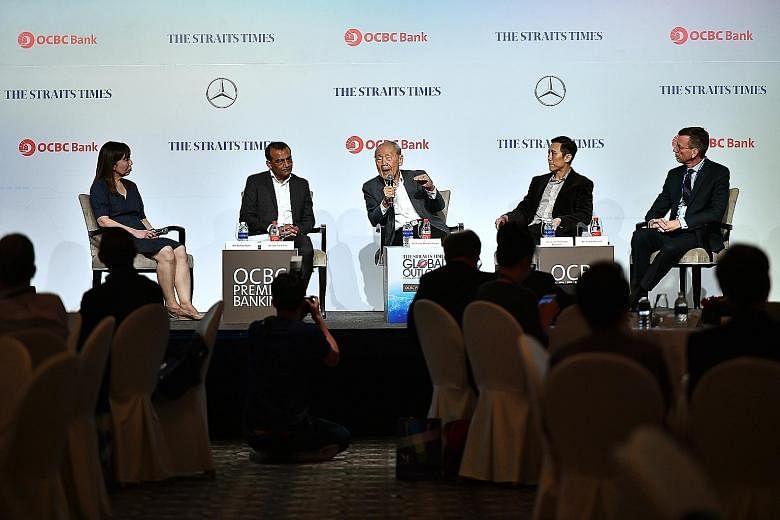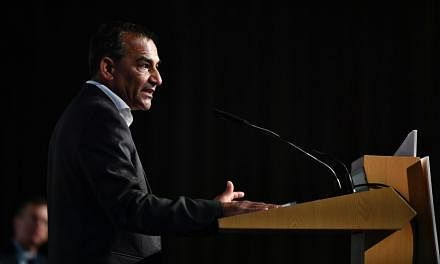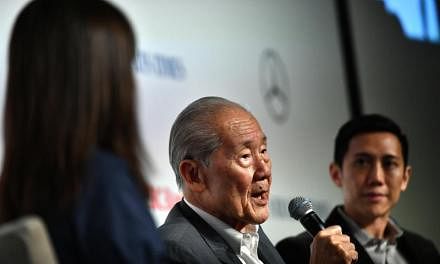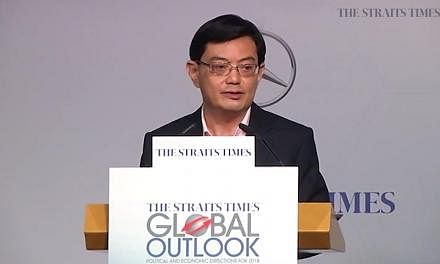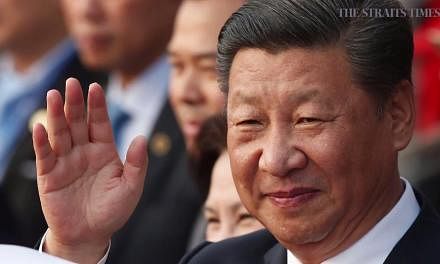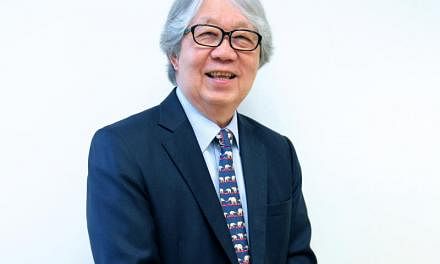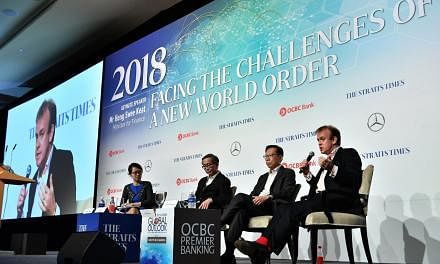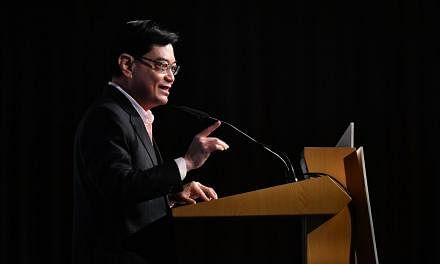US President Donald Trump's election and rising populism in the West reflect a loss of faith in the establishment. But the strength of institutions there also means the United States will recover quickly from its retreat from the world, observers said yesterday at The Straits Times Global Outlook forum.
Meanwhile, China, which is playing a bigger global role, is likely to face considerable problems with its Belt and Road Initiative (BRI) to link countries in Asia and Europe, and it will be difficult to get the ambitious project off the ground, said veteran China watcher Wang Gungwu.
National University of Singapore (NUS) political science Associate Professor Elvin Lim said: "Discontent over globalisation is what caused the Trump phenomenon and Brexit as well as the rise of far-right parties elsewhere in Europe."
Mr Trump won last year's US election on the back of an anti-establishment platform and has since withdrawn, or threatened to withdraw, the US from several global pacts.
Prof Lim said widespread discontentment with the inequalities free trade has brought about will continue until people accept that globalisation, as with any system, is bound to give rise to winners and losers. "Only then are we are going to be less strident about it," he said.
To address the discontent, leaders should not lose sight of reality but instead pay attention to the losses engendered by globalisation, he added. One approach is to build institutions at a local level, rather than supranational ones like the United Nations, to address popular discontent. These include local clubs and civic associations, he said. Such local institutions could serve as a bridge to globalised ones.
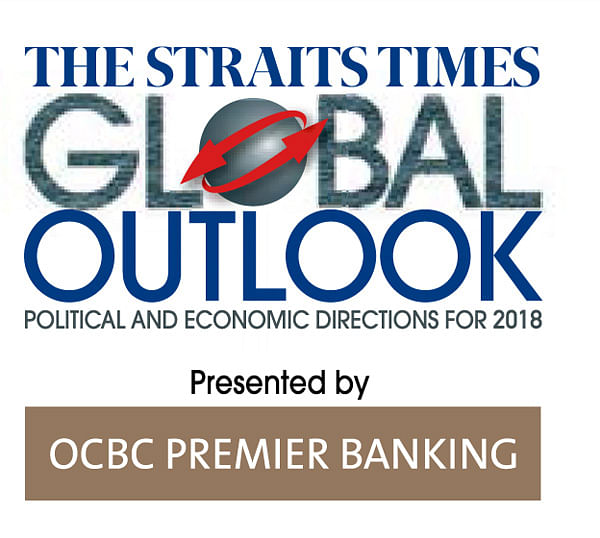
Meanwhile, Professor Wang, chairman of the ISEAS - Yusof Ishak Institute and NUS' East Asian Institute, was confident that institutions in the West would prevail and, by extension, America's leading role in the world. He said: "The US is going through a tough period, but history shows it will recover quickly. They have strong institutions, the whole US population have been involved in the changes of the last two centuries, and the country's participatory democracy is what few countries can boast of."
"It has had moments of loss of faith, but the institutions are much stronger than any other institutions I know of elsewhere," he added.
Prof Wang contrasted this with China, whose profile in the world is rising, but where the lack of strong institutions "will always make things more unstable in China".
China is expanding its global clout through the mammoth BRI, but it faces considerable problems at the practical level, he noted, citing the strife-ridden history of Eurasia and the cost of the scheme unveiled in 2013.
The BRI envisages a network of ports, railways, roads and industrial parks linking some 65 countries from China to North Africa, by way of Central Asia and Europe. "Different countries with different interests have to overcome lots of suspicion on what it is all about," he said.
Still, on another level, China has managed to achieve something else through the BRI, Prof Wang added.
"It is a visionary way of saying to the world that China's attention will be on Eurasia, not on challenging the US across the Pacific," he said. "It is going to focus on Eurasia for the next decade or so ."
